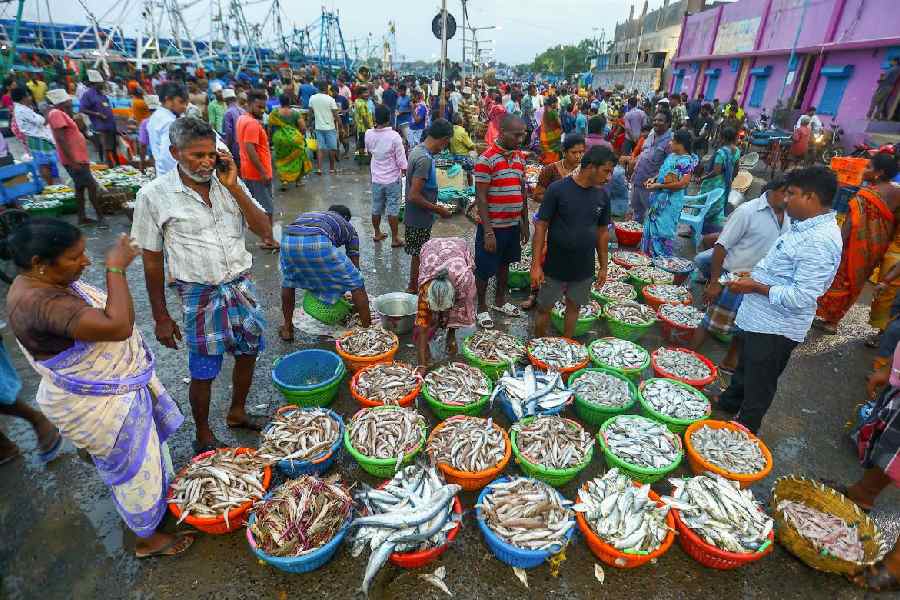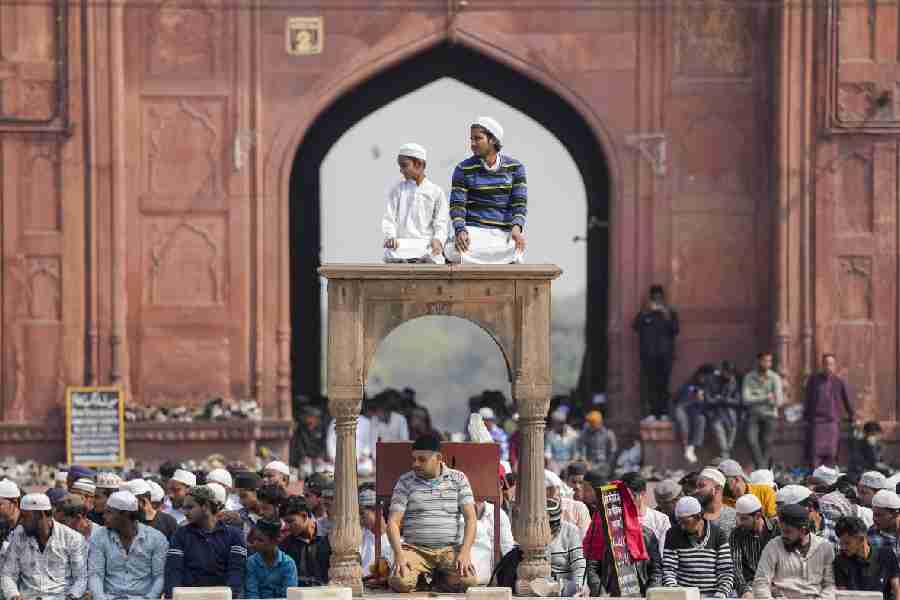Persistently strong or weak Indian summer monsoons can disrupt the Bay of Bengal’s marine ecosystem, depleting fish populations and threatening a vital source of food and income, scientists said in a new study released on Monday.
The study suggests that India and other Bay of Bengal rim nations may need to prepare for possible declines in marine productivity under future climate scenarios that could mirror the conditions linked to extreme rainfall periods.
The researchers, who analysed how long-lasting fluctuations in the monsoon may have influenced the Bay of Bengal marine ecosystem over the past 21,000 years, have found that unusually long wet or dry spells hurt marine productivity.
“We find that both extreme strong and weak Indian summer monsoon periods essentially shut down the Bay of Bengal’s food supply for marine life during these extremes,” Kaustubh Thirumalai, associate professor of geosciences at the University of Arizona and the study’s lead author, told The Telegraph.
Prolonged periods of strong or weak monsoons can reduce food for marine life in the Bay of Bengal’s surface waters by up to 50 per cent as extreme conditions disrupt the vertical movement of nutrient-rich waters that sustain plankton, the ocean’s food chain base.
Thirumalai and his colleagues reconstructed past ocean conditions by analysing fossilised shells of single-celled organisms called foraminifera, retrieved from seafloor sediments during cruises aboard the JOIDES Resolution, a scientific drilling vessel, as it crisscrossed the Bay of Bengal.
Their study, published in Nature Geoscience on Monday, was a collaboration between scientists from India, China, France and the US.
The Bay of Bengal covers less than 1 per cent of the world’s ocean area but accounts for nearly 8 per cent of global fish production.
“The ocean’s ability to support plankton growth is the foundation of the marine food web,” Yair Rosenthal, professor of earth sciences at Rutgers University in the US and a study co-author, said in a media release.
“If ocean productivity declines, it will powerfully affect the ecosystem, reducing fish stocks and threatening food security for coastal communities."
The study found that the Bay of Bengal's productivity collapsed during both extreme states of peak monsoon periods — the driest or weakest period between 17,500 and 15,500 years ago and the wettest or strongest monsoon period between 10,500 and 9,500 years ago.
The findings “point to future declines in the Bay of Bengal productivity” under a stronger monsoon, the scientists have said.
Anticipated future climate scenarios of warmer surface waters and a stronger monsoon leading to more freshwater at the sea surface also prevent nutrient mixing and cause productivity declines, the scientists have said.










